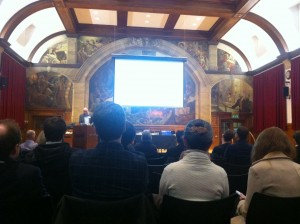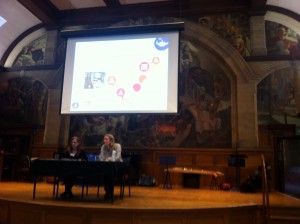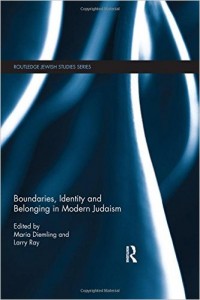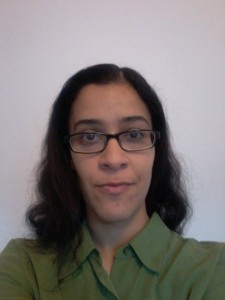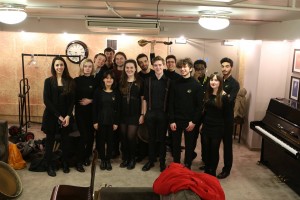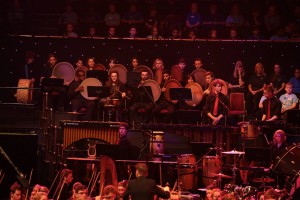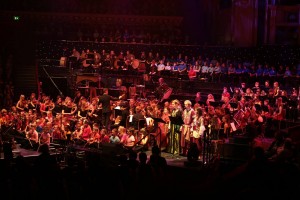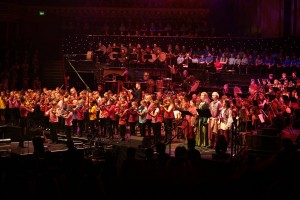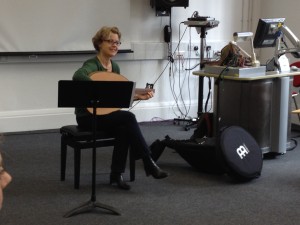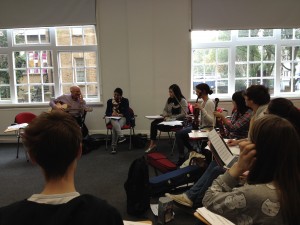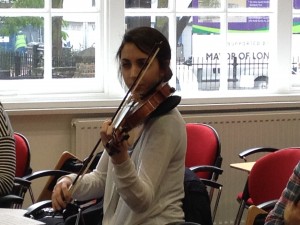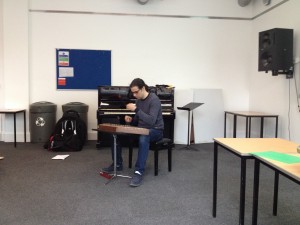The Postgraduate Student Perspective – Rachel Cunniffe, MA Music student
The evening of Tuesday 2nd February 2016 saw the annual ‘Careers with a Music Degree’ event, organised by the Music Department and City University’s Careers Service take place in the Performance Space. As part of the ongoing 40th birthday celebrations, this year’s event was larger than usual and was clearly a great success. A captive audience comprised of undergraduates, postgraduates, staff and alumni listened to speakers from various professional roles, a number of whom were City music alumni. Presented by Dr Alexander Lingas, each speaker outlined their current role and the journey which led them to it, and offered helpful advice to audience members on achieving their goals.
The presentations were opened by Celeste Richardson, a City music alumna, who spoke of her initial ambitions to be a professional soprano yet decided instead to pursue a teaching pathway. Celeste is now the Principal and Managing Director at Foresound Music Education Ltd., a non-profit organisation which currently provides music teaching for over four hundred families. She is also resident soprano and member of the artistic board at the Riot Ensemble. The second speaker, Francesca Treadaway, spoke of her journey to becoming Communications Officer at the Incorporated Society of Musicians, a non-profit organisation with seven thousand members. Francesca spent much of her time as a music college student writing reviews and articles, many of which were published, and these skills helped her secure her current role. Next we heard from Dr Jim Harrison, the Head of Music at Latymer School and his colleague Michael Spence, who both spoke of the teaching profession as highly rewarding and incredibly varied. Donald Wetherick from the British Association for Music Therapy outlined the goals of Music Therapy and his journey to the role, and concluded with some helpful advice to potential applicants which highlighted the importance of gaining experience in a relevant setting. The fifth presentation was given by Harriette Hale, also a City music alumna, who founded Chocolate Box Music at age nineteen and now owns six successful companies. Chocolate Box Music, which is now globally recognised, emerged from a passion to achieve a viable income for professional musicians. Harriette’s other ventures include a music academy, a dance studio and an online mentoring and coaching resource. Finally, Dr Sophie Ransby, Gamelan Manager at the Southbank Centre and City music alumna spoke of her time in Indonesia, the journey to her current role and the incredibly varied work she undertakes at the Southbank Centre.
The evening concluded with an informal networking reception with speakers and other City alumni guests. Many students spoke enthusiastically of the reception and of the event as a whole.
The Undergraduate Student Perspective -Alexander McDonagh, BMus Year 2 Student
There has always appeared to be an idea that if you’re studying for a music degree then performance, teaching or unemployment are going to be the routes one follows post degree. On the evening of Tuesday 2nd February that myth was shattered. What happened on that evening was the annual ‘Careers with a Music Degree’ event, organised in partnership between City University’s Music Department and the university Careers Service.
I, like many of my fellow students, chose to study music at university because of the love affair I had been having with the subject from a very young age. Yet despite this, my plans post university had always remained a light sketch rather than a definitive blueprint. I knew a degree was going to be extremely beneficial to whatever path I chose to go down but I hadn’t actually given much consideration to what that path was going to be. This was where the ‘Careers with a Music Degree’ evening came to the rescue.
The evening saw numerous speakers discuss their careers, all following a music related pathway, as well as imparting invaluable advice to the audience of undergraduates (like myself); postgraduate students; staff and alumni. This was followed by an informal networking over nibbles and wine where we were able to absorb as much life experience and wisdom as we possibly could.
Although all the speakers were inspiring and I could easily write about all of them in detail, if only I didn’t have a degree to complete, I have decided to focus on three speeches which I found a real connection to and which I feel were most beneficial to my personal career path.
The first speaker of the evening was Celeste Richardson. After completing her music degree at City, Celeste began to pursue a career as a professional soprano. After realising that it wasn’t what she wanted to do for the rest of her life she founded Foresound Music Education Ltd of which she is the Principal and Managing Director. This not-for-profit company has grown significantly and now provides musical education to over 400 families across London. For me the most inspiring thing about Celeste’s story was that it beautifully personified that your career isn’t set in stone and that (forgive me for sounding like a horoscope) taking a risk and following your intuition can lead to much bigger plans than you ever expected.
The second speaker who I found extremely beneficial was Francesca Treadaway who is the Communications Officer for the ISM, the Incorporated Society of Musicians. The ISM is a non-profit organisation that provides support, protection and advice to over 7,000 members who are working or studying musicians. After studying the trumpet at music conservatoire, Francesca realised this wasn’t the career she saw herself doing and decided to follow another passion of hers: writing. Having been an avid writer throughout her time at music college, writing articles and reviews, Francesca was able to successfully carve a path for herself. Having also spoken to her after the talk, the best piece of advice that she imparted to me was that sometimes we have to be brave and hold our hands up if we aren’t happy and say ‘this isn’t the job for me’. Your first job isn’t necessarily the right one and you have to be prepared to take a risk and step away if it doesn’t feel right.
The next speaker to particularly inspire me was Harriet Hale, another City alumna. Having founded her first company, Chocolate Box Music, at the age of nineteen whilst still a student at City, Harriet has now gone on to found a further five companies. Whilst her initial company was born out of a desire to help provide a viable income for her fellow students and other musicians, she has gone on to create a music academy as well as an online mentoring scheme to name but a few of her ventures. For me what was so inspiring about Harriet was her pragmatic approach to business; her insatiable drive for success and her determination to choose her own direction in this world. For me the last point was the one which I took most heed of. If there isn’t a path which you’re happy with get a damn axe and start carving your own way through the woods.
I would like to extend my gratitude to everyone who spoke during the evening and to the City Music Department and City’s Careers Service for providing me and my fellow students which such an invaluable experience.
http://www.city.ac.uk/careers
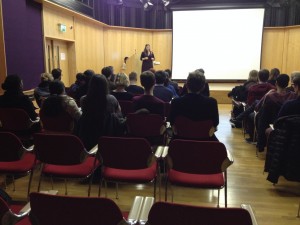
Celeste Richardson
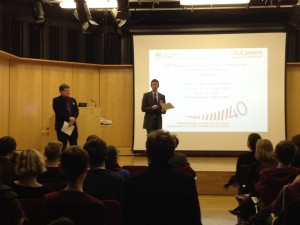
Dr Jim Harrison and Mr Michael Spence
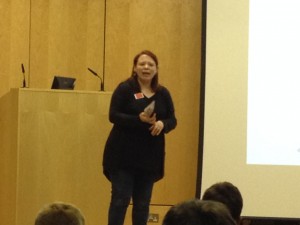
Sophie Ransby
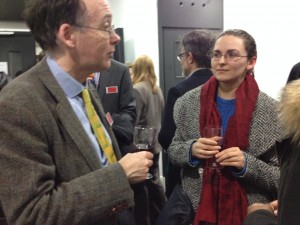
Mr Donald Wetherick talking to current MA student Jocelyn Coates

